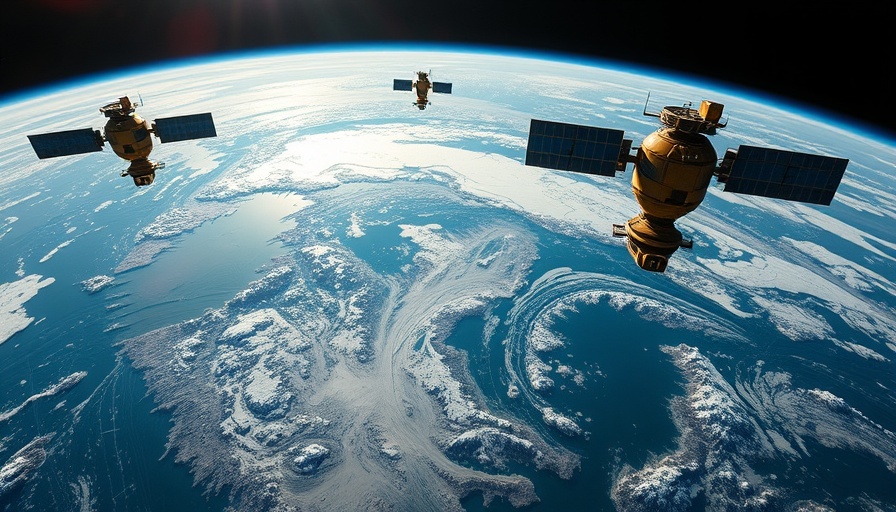
Understanding the Alarming Acceleration of Glacial Melting
Recent studies led by scientists at the University of Zürich have revealed alarming trends in glacial melting. The world's glaciers are losing a staggering 273 billion tonnes of ice annually, contributing to rising sea levels that threaten coastal communities and ecosystems. As evident from satellite data, glacial melting has accelerated, with a 36% increase in ice loss recorded from 2012 to 2023 compared to the preceding years.
The Impact on Sea Levels: A Global Crisis
This unprecedented rate of ice loss translates into global sea levels rising by nearly a millimeter each year. To put this into perspective, the amount of ice lost in just one year is equivalent to what the entire global population consumes in 30 years at an average of three liters per person per day. This stark comparison makes it clear that the crisis we face is not just a distant threat, but an ongoing reality that affects freshwater supplies and coastal stability.
Insight into Glacial Dynamics: Technological Advances in Monitoring
The research utilizes an impressive array of satellite technology, including NASA's Ice, Cloud, and Land Elevation Satellites (ICESat) and the European Space Agency's CryoSat-2. These tools provide critical data on ice thickness and surface changes, enabling a precise assessment of global glacier dynamics. Techniques like photogrammetry and altimetry are pivotal to understanding the extensive changes occurring within these vital freshwater reserves.
Regional Impacts: The Need for Urgent Action
Regions that rely on glaciers for their freshwater supplies are heavily affected. For instance, glacial retreat in western North America has led to a 23% loss in glacier volume since 2000, impacting water availability for agriculture and urban populations. As the planet continues to warm, these freshwater resources become ever more critical; over 400 million individuals worldwide are at risk from rising sea levels that could submerge low-lying areas.
The Future: Predictions for Glacial Retreat
Looking ahead, experts emphasize the need for immediate collective action to combat climate change, primarily driven by greenhouse gas emissions. The acceleration of glacial melting, alongside its implications for sea-level rise, presents a clear indicator of the broader climate crisis. Without significant reductions in carbon emissions, we can expect further degradation of glacial regions, worsening freshwater shortages, and amplifying humanitarian challenges.
Counterarguments and Diverse Perspectives
While the overwhelming evidence points towards accelerating glacial melt due to climate change, some argue that natural variability also plays a role in these trends. For instance, while certain regions have experienced significant warming, others may see temporary gains in glacier mass due to increased precipitation. It is essential to consider these nuances in public discourse to foster a comprehensive understanding of glacial dynamics.
Practical Insights: What Can Be Done?
Individuals and communities can take actionable steps towards mitigating climate change ramifications. Advocating for policies that prioritize renewable energy, promoting sustainable practices, and supporting research into innovative water management strategies are crucial for protecting our freshwater supplies. Climate education and awareness also empower citizens to take initiative at local and national levels.
Conclusion: Why This Matters
The melting of glaciers has ramifications that extend beyond rising sea levels; it impacts water security, biodiversity, and human livelihoods. Awareness and proactive engagement from both individuals and governments are vital in addressing these pressing challenges. Understanding the intricate relationship between glacial melt and climate change is crucial for developing effective strategies to safeguard environmental and human health in our changing world.
As we face these challenges, it is our collective responsibility to advocate for a sustainable future. Engage with local and global initiatives that promote environmental stewardship, and stay informed on developments regarding climate change and its impacts.
 Add Row
Add Row  Add
Add 




Write A Comment